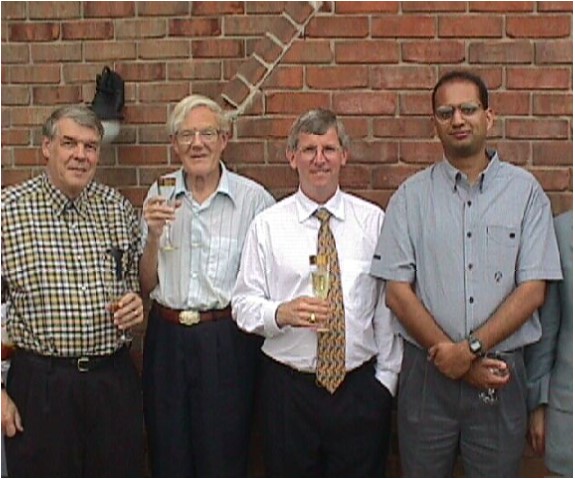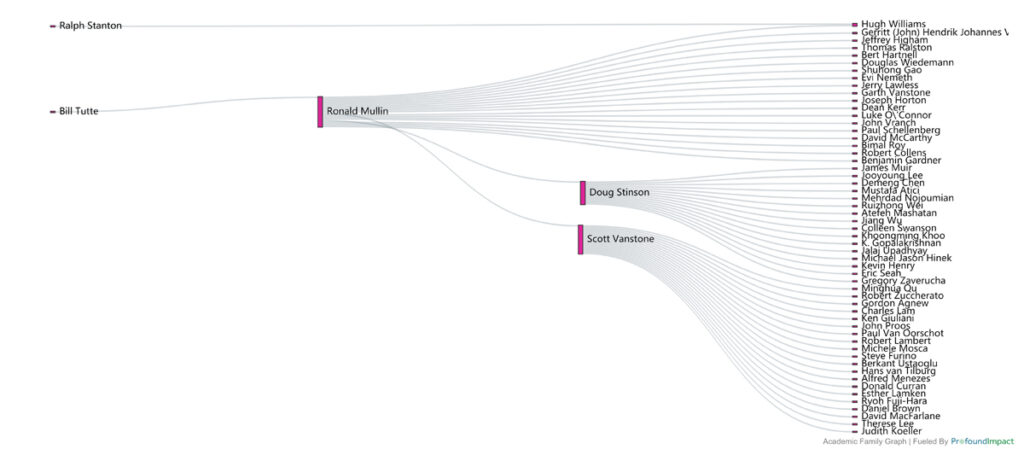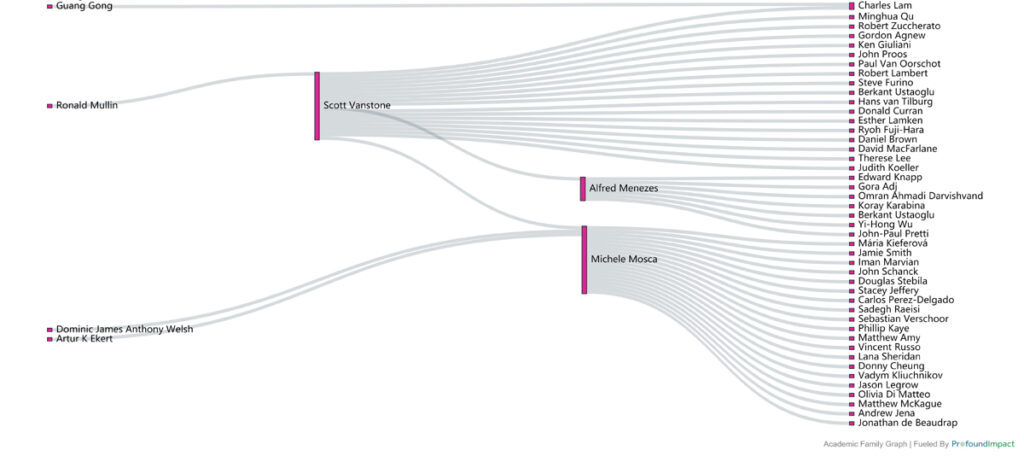Scott A. Vanstone
The Impact Stories series highlights individuals in our global community who are making, or who have made, a profound impact on inspiring collaborative solutions to the challenges faced by our world today.

Scott Vanstone — Pioneer, Visionary and Mentor
When Scott Vanstone first learned about Elliptic Curve Cryptography (ECC) in 1985, he recognized it had the power to change the world. Today, ECC is one of the most powerful types of cryptography securing most of the devices we use every day. Its success is due in large part to Scott’s vision, research and perseverance and to those he mentored and trained during his career as a researcher, professor and entrepreneur.
Scott’s journey from PhD student to world-renowned researcher and company co-founder can be traced back to Bletchley Park, Britain’s secret facility set up in World War II and staffed with young mathematicians to break Nazi codes.
When the Department of Mathematics was founded in 1960 at the newly-established University of Waterloo, its chairman, Ralph Stanton, had the foresight to recruit influential faculty members — including William Tutte, the founder of graph theory and Bletchley Park alum. In addition to teaching and research, Waterloo offered Tutte the opportunity to mentor graduate students in the emerging field of cryptography. Ron Mullin was one of those students.
Ron Mullin arrived in Waterloo in 1959 to finish his graduate work and became first-ever UW graduate, receiving an MA in mathematics in 1960.
Scott Vanstone graduated with his PhD in Mathematics from the University of Waterloo in 1974, working under Ron Mullin’s supervision. Scott established his career as an assistant professor of Mathematics in the Department of Combinatorics and Optimization (C&O) and, during the early part of his career, concentrated on pure mathematics. However, he quickly became intrigued with cryptography and its potential for real-world applications.
In 1985, he co-founded Certicom Corp with Professors Ron Mullin and Gord Agnew to commercialize a new mathematical method and chip architecture the team had discovered.
In addition to his work as a researcher and entrepreneur, Scott was also known for his ability to collaborate with others and bring out the best in his students. He had a unique ability to identify talent immediately and worked with his students to help them achieve their Masters or PhDs and encouraged them to push themselves.
Although Scott passed away in 2014, he continues to have an impact on the future of cryptography.
Alfred Menezes, now a professor in the C&O Department at UW, was one of those students. Scott visited Menezes’ Brampton high school to encourage him to attend the University of Waterloo. Menezes went on to receive his PhD in 1992 and his thesis was published as the first book on ECC. Today, Menezes is recognized as a leading expert in cryptography.
Michele Mosca, also a professor in the Waterloo C&O Department, is researching the new generation of cryptography that will be needed with the advancement in quantum computing. As Mosca works on advancing quantum computing and building a stronger cyber immune system, he has looked to Scott’s early work in building Certicom’s contribution to ECC as a playbook.
Spanning more than 80 years, from breaking Nazi codes to building quantum computers, Scott Vanstone’s distinguished academic heritage and ground-breaking legacy are testament to the profound impact of connections and collaborations.
Scott Vanstone’s Academic Ancestry (click images for larger)

